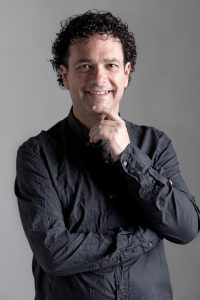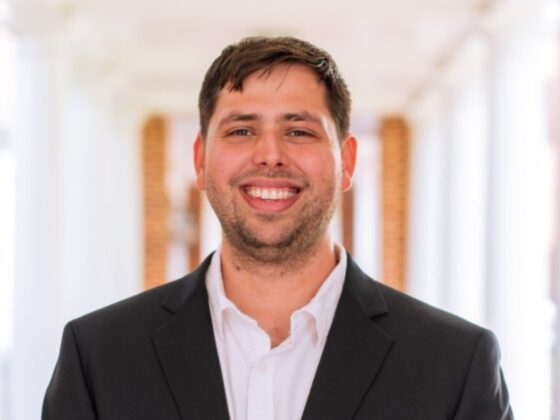By Courtney Zerrenner
Antoni Olive Tomas, Ph.D., is a visiting scholar to Darden from the IQS School of Management at Universitat Ramon Llull in Barcelona, Spain. Before entering academia, Toni worked for twenty-five years as a manager and finance director for industrial firms in Spain. His career and background in business management became the experience that he drew from to teach future managers when he stepped down fifteen years ago.
Toni’s stint as a part-time professor was brief, as he was offered a full-time professorship at the EADA Business School in the Accounting, Finance, and Management Control department two years later, teaching both finance and non-finance students at a school “very similar to Darden with lots of graduate students from abroad.” As a full-time professor, Toni was required to obtain his Ph.D., so he began his studies in 2007 at the Unversitat Politecnica de Catalunya (UPC), receiving his doctorate in 2010. He is now the Senior Lecturer at IQS teaching strategic management and entrepreneurship.
While completing his thesis dissertation at UPC, Toni encountered Darden professor Saras D. Sarasvathy’s work on effectuation and included insights from Sarasvathy’s seminal article, “Causation and Effectuation: toward a Theoretical Shift from Economic Inevitability to Entrepreneurial Contingency” (2001) in his dissertation. Since his discovery of Sarasvathy in the late 2000s, “Sarasvathy has been my academic idol,” Toni explained. He now teaches the theory of effectuation in his strategic management and entrepreneurship courses in Spain, and Toni believes that “while I am not the only professor teaching effectuation in Spain, I was one of the first.”
Toni explained further that there are many ways to start a business, including the conventional method of following a prescribed set of steps. However, there is also the unconventional method of effectuation which encourages harnessing the power of one’s own current means to create an economic product. “Teaching effectuation is less shocking if taught from the angle of entrepreneurship,” Toni articulated. He hopes that by the end of his course in entrepreneurship, the students will be able to successfully outline a business plan, either through conventional methods or through effectuation, because while “[the students] are very clever – they know how to send a rocket to the moon – but not how to write a business plan.”
Because students occasionally express dissatisfaction with doing business for the sake of generating wealth, Toni tries to frame business and entrepreneurship as “not just a way to become rich; it can improve living conditions, address societal needs and wants, and create jobs. Business is not just dirty money.”
Teaching, “and good teaching at that” has become Toni’s priority, and he spends “more time teaching than researching.” He is constantly looking for new ways to introduce concepts to classrooms, and he participates in a research group on bringing gamification and effectuation to students through in-class activities. His participation in the research group prompted interest from his university, and Toni received an invitation to apply for a grant to work and research abroad from his institution and a bank in Spain. He applied, and Toni was shocked when he received the grant, saying that he “didn’t expect to receive the grant, because frankly, I haven’t done much research.”
Soon after obtaining the grant, Toni contacted Professor Sarasvathy, asking to conduct research at Darden this summer. Sarasvathy and Toni met briefly in Norway at a conference to discuss details of his possible fellowship and research goals. Following their meeting, Professor Sarasvathy welcomed him warmly, and Toni arrived at Darden June 17, 2016.
Toni’s goal this summer consists of three assignments dealing with simulation games in classroom settings, and he will be researching whether you “can apply effectuation to create artifacts other than economic artifacts, specifically whether Picasso participated in effectuation by creating the movement of Cubism.” Over the past month, Toni has been pouring over art history books and texts on Picasso, and he is starting “to make connections between the creation of movements and styles by artists and the creation that occurs when entrepreneurs start ventures.” His other assignment is to craft a game to instruct students on effectuation in entrepreneurship courses. He is hopeful that the time spent at Darden will “allow me to better explain the alternative way of business by examining your resources and the contingencies that may occur” in classroom settings.
Speaking of contingencies, or “small disasters” as Toni likes to call them, Toni has encountered his fair share of contingencies upon arrival in Charlottesville. Between learning “how to run an American washing machine, how to run appliances, and how to use the kitchen,” Toni has troubleshot his way through the past month, including identifying a Craigslist scam during his search for an apartment to sublet. He will return to his own university in Barcelona in mid-September, better equipped to both teach effectuation to his students and to run American appliances.




